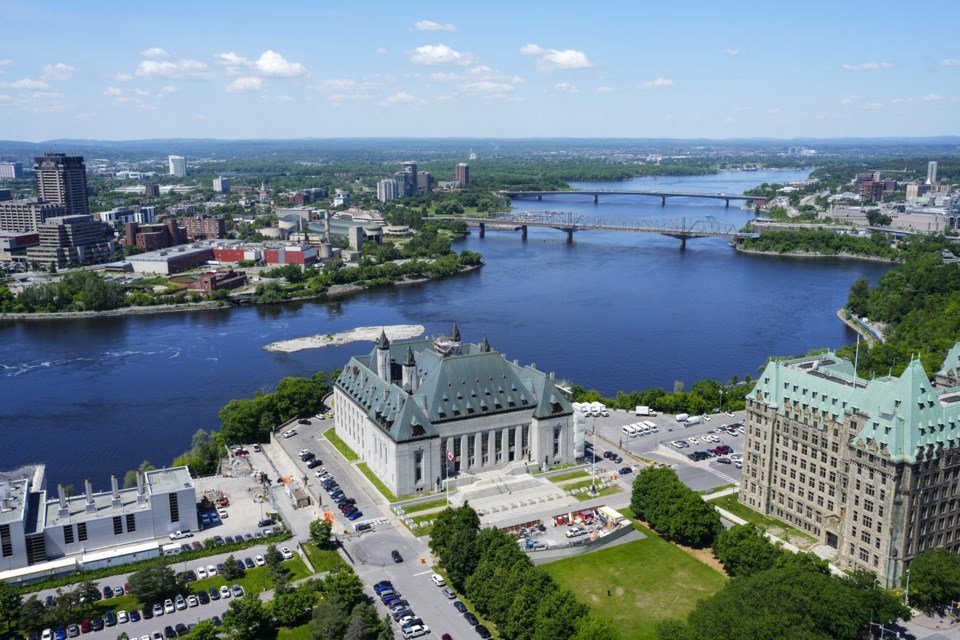OTTAWA — The Supreme Court of Canada has ruled that the state is not immune from liability for drafting and enacting laws that are later found to be unconstitutional.
In a ruling Friday, a majority of the top court said governments have a limited liability for laws that are found to violate the Charter.
The decision paves the way for a New Brunswick man to take the federal government to court over two laws passed by the former Conservative government in 2010 and 2012.
Joseph Power was convicted of criminal offences in the 1990s, served a prison sentence, and then went on to become a medical radiation technologist.
He was suspended from work in 2011 when his employer learned of his criminal record, and he applied for a pardon in 2013 but was denied.
Legislative changes introduced by the federal Conservatives that applied retrospectively made him permanently ineligible for a pardon and he lost his job. Power said his criminal record made it impossible for him to work in his field.
However, parts of the legislation that allowed for retrospective application were later declared to be contrary to the Charter of Rights and Freedoms.
Power filed a legal action seeking damages, alleging the adoption and application of the legislation amounted to conduct that was clearly wrong, undertaken in bad faith and abusive of government power.
Before that went to trial, the federal attorney general sought clarity on whether the Crown can be held liable for damages for drafting and enacting a bill that is later found to be unconstitutional.
A judge ruled there could be liability in certain circumstances, and the decision was upheld by New Brunswick's Court of Appeal. The federal attorney general then took its case to the Supreme Court.
The case involved a lengthy list of interveners that included provinces, several First Nations and the Speakers of the House of Commons and Senate.
The Supreme Court said governments can be held liable for laws that are clearly unconstitutional, were in bad faith or are an abuse of power. That high bar has been in place for more than two decades.
"By shielding the government from liability in even the most egregious circumstances, absolute immunity would subvert the principles that demand government accountability," wrote Chief Justice Richard Wagner and Justice Andromache Karakatsanis on behalf of the majority.
The decision noted the importance of parliamentary privilege in Canada's democracy, saying it gives legislatures the tools they need to carry out their core functions by, for example, ensuring lawmakers have the freedom of speech needed to do their jobs without fear of liability.
However, Wagner and Karakatsanis wrote, Power's action is against the state and not individual members of Parliament.
"The state’s liability for unconstitutional legislation does not engage members' personal immunity for parliamentary speech. Nor does it interfere with Parliament's power to control its own debates and proceedings, or dictate how the legislative function is exercised."
The decision rejected an argument by the Attorney General of Canada that "recognized categories of parliamentary privilege extend to bar external review of every stage in the law-making process, and of all speech and all conduct by government officials or ministers related to the law-making process, including their unspoken motivations."
The court said that argument risks extending parliamentary privilege to the executive branch, "with far-reaching and unforeseeable consequences."
The court's ruling does not delve into whether Power ought to be awarded any damages, but instead clears the way for him to proceed if he chooses to.
Two justices, Nicholas Kasirer and Mahmud Jamal, wrote a partially dissenting opinion arguing that the Crown should have absolute immunity for preparing and drafting — but not enacting — an unconstitutional law.
Justices Suzanne Côté and Malcolm Rowe dissented with the ruling altogether, writing that "the preparation, drafting, and enactment of legislation necessarily implicates parliamentary privilege, which is fundamentally at odds with awarding damages against the Crown in the manner sought."
This report by The Canadian Press was first published July 19, 2024.
Sarah Ritchie, The Canadian Press
